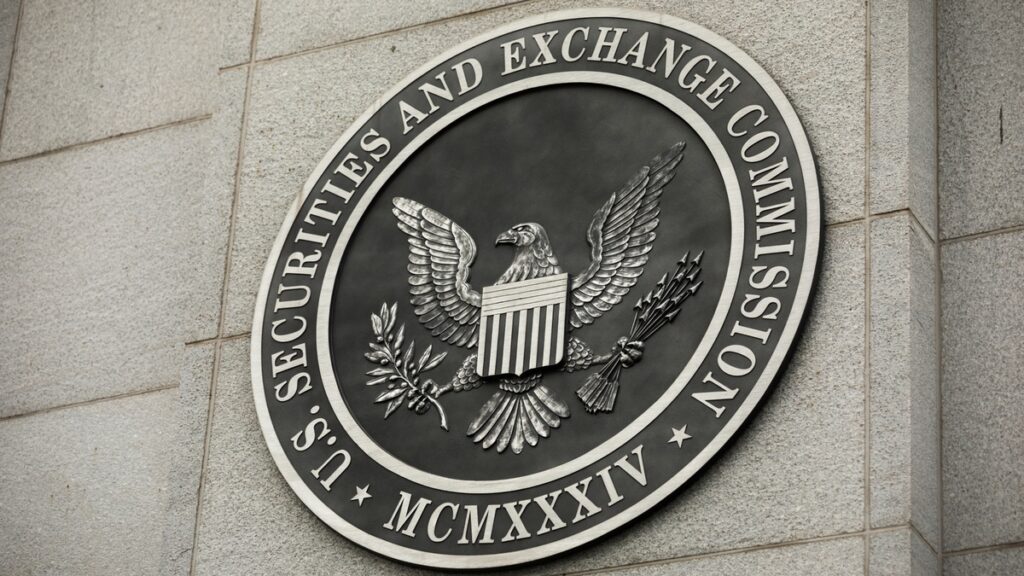-
The SEC crypto crackdown has targeted titan companies, including Ethereum Foundation, Consensys, Robinhood, Uniswap Labs, Coinbase, Binance, Ripple, and Kraken.
-
Ethereum 2.0 and the Ethereum Foundation are currently subject to legal oversight by the SEC, according to Consensys.
-
Regulations of digital assets in the United States must be clear and consistent, which will help shape the future of crypto.
The SEC has intensified its focus on crypto companies in the United States, resulting in investigations and legal actions. This comprehensive review highlights ongoing SEC investigations, prominent lawsuits in progress, and companies that have received Wells Notices or are under scrutiny for involvement in the crypto market.
SEC’s Crypto Crackdown: Companies Under Investigation
Ethereum Foundation and Consensys Under Scrutiny
The SEC’s crypto crackdown targets several major digital asset players. Last week, revelations from a lawsuit filed by Ethereum software firm Consensys against the SEC disclosed that the agency had considered ETH security for over a year.
The lawsuit also indicated that the SEC is investigating numerous American companies involved in buying and selling ETH and exploring their connections to the Ethereum Foundation, a Swiss nonprofit that supports the Ethereum network.
In February, the Ethereum Foundation received a subpoena from an unnamed “state authority,” reportedly the SEC, as reported by Fortune. Although no charges have been filed, the SEC’s investigation into “Ethereum 2.0” has prompted Consensys to file a preemptive lawsuit against the agency. This legal move aims to resolve ETH’s legal status proactively.
Robinhood and Uniswap Labs Face Legal Battles
Robinhood Crypto, the digital assets arm of the popular stock trading app, announced it had received a Wells Notice from the SEC. This constituted an impending lawsuit for alleged securities violations.
The SEC’s subpoenas to Robinhood focused on cryptocurrency listings and custody practices. In response, Robinhood delisted three crypto tokens—Cardano (ADA), Polygon (MATIC), and Solana (SOL)—following the SEC’s allegations that these tokens are securities.
Similarly, Uniswap Labs, the company behind the Uniswap decentralized exchange (DEX), received a Wells Notice from the SEC in April. The impending lawsuit against Uniswap will argue that DEXs, which operate on automated code and smart contracts, should be regulated as securities exchanges. This marks a significant development as it targets the foundational technology of decentralized exchanges.
Coinbase and Binance: High-Profile SEC Lawsuits
Coinbase, one of the largest crypto exchanges, has been embroiled in a legal battle with the SEC since June. The SEC’s lawsuit against Coinbase alleges that the exchange operated as an unregistered securities exchange, broker-dealer, and clearing house.
Additionally, the SEC has challenged Coinbase’s crypto-staking services. Although Coinbase got a portion of the lawsuit dismissed, the core allegations remain, with the case now proceeding to discovery.

Binance, another major crypto exchange, faces similar allegations from the SEC. The lawsuit claims that Binance operated as an unregistered securities exchange, broker-dealer, and clearing house. Moreover, Binance is accused of failing to restrict U.S. customers from accessing its global platform, Binance.com.
The lawsuit also personally implicates Binance founder Changpeng Zhao, who recently faced a prison sentence for money laundering violations. Despite paying a $4.3 billion fine, Binance vigorously fought the SEC’s suit.
Ripple and Kraken: Ongoing Legal Challenges
Ripple Labs owns the XRP token and has been in a prolonged legal battle with the SEC since 2020. The SEC alleges that Ripple’s XRP sale constituted an unregistered securities offering.
In a significant win for Ripple, a federal judge ruled that Ripple’s direct sales of XRP to consumers did not violate securities laws. However, the judge found that Ripple’s offerings to institutional investors qualify as unregistered securities schemes. The SEC wants $2 billion in fines from Ripple.
Kraken, another prominent crypto exchange, agreed to pay the SEC $30 million and halt its crypto staking programs in the U.S. in an earlier settlement. However, Kraken faces another SEC lawsuit arguing that the exchange operates as an unregistered securities exchange, broker-dealer, and clearing house. Kraken, like other exchanges, is pushing back against this proposed suit.
Navigating the Crypto Regulatory Landscape
The SEC’s intensified scrutiny of the crypto industry highlights digital asset companies’ regulatory challenges. From Ethereum to Uniswap and Coinbase to Ripple, the SEC’s actions underscore the need for clear and consistent digital asset regulations.
As these legal battles unfold, the crypto industry seeks clarity and compliance in a rapidly evolving regulatory environment. The outcomes of these cases will likely shape the future of crypto compliance and digital asset regulations in the United States.
ALSO, READ; Collaborative Regulation: CBN and SEC’s Approach to Crypto Oversight in Nigeria.
The ongoing SEC investigations and lawsuits against major crypto companies emphasize the importance of regulatory compliance and the evolving landscape of digital asset regulations. Companies must navigate these challenges carefully to ensure compliance with the SEC’s stringent crypto laws and regulations.
